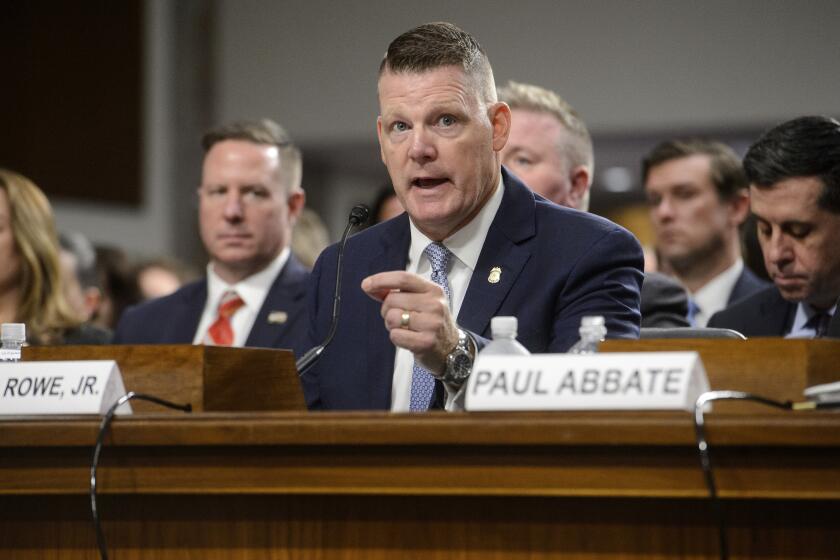Deeper, Deeper in the Budget Hole
No one wants to say it, but the nation’s budget deficit problem is getting worse, not better. Congress and the Bush Administration have joined in cooking the books so that it appears the federal government is meeting the Gramm-Rudman budget-deficit reduction targets. But that is largely sham, based on accounting gimmicks, questionable economic assumptions and on counting billions of dollars as income when it should not be counted.
Some of the gimmicks seem harmless enough. For instance, one way to make the 1990 budget outlook appear brighter is for the Defense Department to meet its Oct. 1 payroll in September, just before the new fiscal year starts. A billion here and a billion there add up.
Even ignoring the biggest charade of all, the Congressional Budget Office believes 1990 spending will create a deficit of $141 billion in the fiscal year. Add to that some $60 billion in Social Security receipts that should not be considered as income, and the deficit rises to a real figure of about $200 billion.
The fact is that very little has changed since Gramm-Rudman was adopted back in 1985, when the budget deficit crisis really seemed to be a crisis. Every year, Congress and the Administration have scraped for perceived savings so as to slip, technically, just under the deficit limit. The situation was made even worse this year when Congress and the Administration agreed to keep portions of the savings-and-loan industry bailout off the budget so they would not trigger automatic budget cuts.
There are many reasons, of course, that neither Democrats nor Republicans are saying much about the deficit these days. In President Bush’s first year, Democratic are not as quick to try to embarrass Bush as they were Ronald Reagan. Bush is struggling to keep his no-new-taxes pledge through his first year. Democrats are being agreeable in hopes of setting the framework for some sort of bipartisan tax hike next year.
Democrats, on the other hand, will not risk being branded as taxers and spenders again by going it alone on a tax hike. And neither party has been willing to take the political heat involved in challenging the automatic increases in entitlement programs such as Social Security and medical services. Until they do, there can be no substantial relief from budget deficits. Meanwhile, the debt keeps getting bigger, thus compounding the federal interest payments that must be made annually. Net interest this year will cost about $170 billion.
The real cost to the nation is far greater, than just the interest expense. The respected Committee for Economic Development notes in a new report that the federal budget deficit, combined with the annual trade debt, jeopardize American economic standing in the world. They consume American investment income and force the United States to rely on foreign capital. They keep real interest rates higher than they should be. With such massive deficits in a period of virtual full employment, there is no flexibility for dealing with the costs of a possible recession other than watch the deficit soar even higher.
The solution is a relatively modest combination of reductions and reforms throughout the budget, selective tax increases that will not harm the economy, a considerable dose of political will and a willingness to share the political pain. First, however, Washington needs to be prodded into acknowledging that the deficit problem has not gone away.
More to Read
Get the L.A. Times Politics newsletter
Deeply reported insights into legislation, politics and policy from Sacramento, Washington and beyond. In your inbox three times per week.
You may occasionally receive promotional content from the Los Angeles Times.






